Although wasps play an essential role in the ecosystem, they are considered pests due to their stinging behavior. You may fear wasps because of their potential painful stings, and you may often hear that deodorant deters them, but does hairspray kill wasps?
No, hairspray doesn’t kill wasps directly. You can use it as a short-term solution to paralyze and ward off wasps, though. Direct hairspray application to wasps can cause it to attach to their body and wings, making them unable to fly and ultimately killing them. However, this method might not be efficient for dealing with a massive wasp nest.
Interested in knowing how to use hairspray efficiently to deter or kill wasps? Read the below details to prevent these irritating buzzing insects.
Hairspray; What’s It?
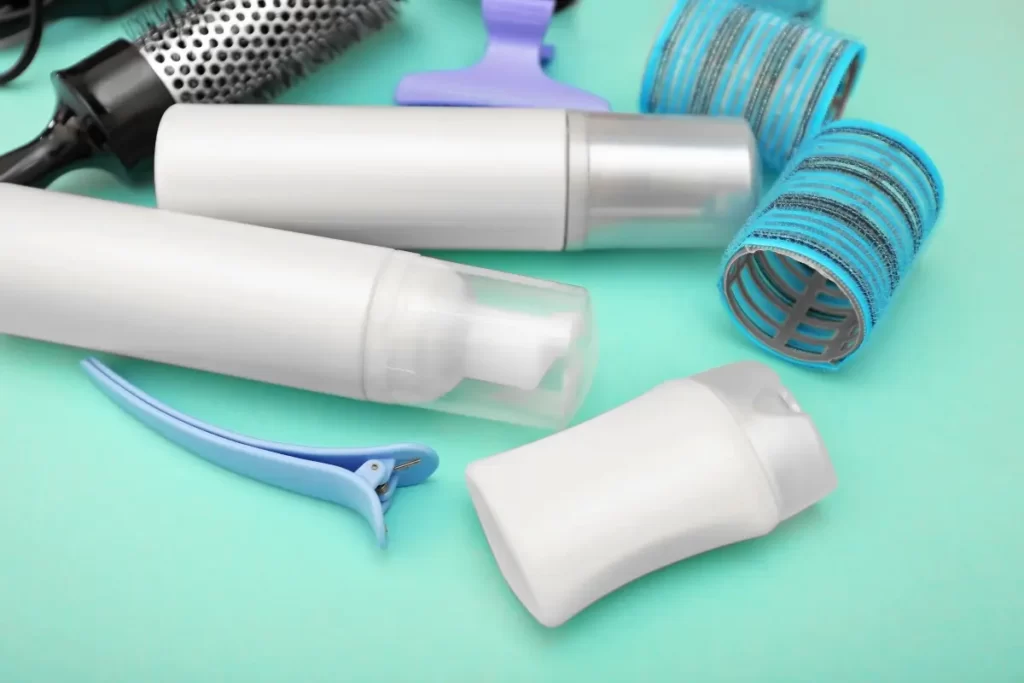
Hairspray is a cosmetic item that locks hair in place and gives hairstyles a specific amount of stiffness or grip. It typically comes in an aerosol spray can or pump bottle and is applied to the hair to help maintain a desired style, prevent frizz, and keep hair looking neat and well-groomed.
According to the International Journal of Cosmetic Sciences, hairspray is used for styling and weather resistance, but it changes your hair color. It contains a mixture of polymers, solvents, propellants, and other ingredients creating a thin film on your hair strands. Additionally, through its adhesion to the hair strands and provision of a certain amount of stiffness, this film aids in keeping the hair in place and minimizes movement.
Moreover, some hairsprays also offer additional benefits, such as added shine, heat protection, and humidity resistance.
Types of Hairspray to Kill Wasps
Using hairspray to kill wasps can be beneficial because of its sticky texture and capacity to immobilize insects. When selecting a hairspray for this purpose, consider the following varieties:
- Extra-Hold Hairspray: The degree of grip that hairsprays may provide impacts how they are evaluated. Hairsprays labeled as “extra-hold” tend to have a stronger adhesive quality, which can help immobilize wasps more effectively.
- Aerosol Hairspray: Aerosol hairsprays offer a more focused and strong spray, which might be useful when targeting flying insects like wasps.
- Unscented Hairspray: Use unscented hairsprays because they could serve to attract wasps rather than to ward them off.
Even though hairspray can deter wasps, it might not be the best option for dealing with entire nests; in these cases, it is advisable to contact expert pest control services to ensure safe and effective wasp nest removal.
Does Hairspray Work Against Wasps?
Yes, hairspray can work against wasps, but won’t kill them directly. It can immobilize and suffocate wasps by creating a sticky layer on their wings and bodies, making it difficult for them to fly and escape. After their immobilization, you can kill them using a fly swatter or anything heavy.
But it’s important to understand that this is not the most humane or secure method of wasp repulsion. Hairspray may offer momentary comfort, but it won’t solve the underlying wasp issue. There are risks, such as inciting the wasp to sting or ingesting the toxins. Additionally, because hairspray can add to air pollution, it is not a sustainable solution.
Therefore, you should always seek professional pest control services to deal with a wasp infestation.
Does Hairspray Destroy Wasps’ Nests?
No, hairspray doesn’t destroy wasps’ nests. It is not a dependable or effective way to eliminate wasp nests. While some people have claimed success immobilizing or suffocating individual wasps with hairspray, this is not a suggested strategy for dealing with a wasp colony.
Wasp nests contain several wasps, and spraying hairspray on one can annoy the wasps and provoke them to attack. Therefore, it is preferable to seek the assistance of experienced pest control professionals to control wasps.
In addition, handling a wasp nest without the necessary training and tools can lead to stings, which can be uncomfortable and occasionally dangerous, particularly if you are allergic to wasp stings.
How Long Does a Hairspray Take to Kill Wasps?
The effectiveness of hairspray as a DIY method for killing wasps relies on many variables, including the brand and type of hairspray used, the number of active ingredients, and the size and resistance of the wasps.
Hairsprays frequently contain compounds capable of immobilizing and suffocating insects, including wasps. When you apply hairspray directly to wasps, it can coat their bodies and wings, preventing them from flying and ultimately leading to their death from a lack of oxygen.
In other words, it can take the wasps a few minutes to become paralyzed before they finally succumb to their injuries. Though some wasps could be more resistant than others, hairspray might not be a quick fix.
Is Hairspray the Most Effective Wasp Repellent?
No, hairspray isn’t the most effective wasp repellent. While its sticky nature may temporarily paralyze individual wasps, it is not a reliable or suggested strategy for dealing with a wasp infestation or preventing them from an area.
Additionally, hairspray will not work if there is a swarm or a nest of wasps. It lacks the essential elements required to kill wasps. Below are some reasons why hairspray isn’t an effective wasp repellent:
- Temporary Solution: While hairspray can temporarily immobilize a single wasp, it will not effectively dissuade or prevent an entire colony from returning.
- Health and Environmental Issues: Hairspray contains toxins damaging to both you and your environment. It is not designed as an insect repellent, and using it for this purpose may expose you to unnecessary dangers.
- Less Effectiveness: Wasps are gregarious insects that become aggressive on a threat. Spraying them with hairspray may irritate them and cause more stings. Wasps can sometimes fly away before the hairspray dries, rendering it ineffectual.
- Not a Long-Term Solution: Even if you successfully repel a few wasps using hairspray, it will not address the underlying cause of the problem. Wasps draw to food supplies, breeding places, and other environmental influences. You should consider these aspects for effective wasp control.
Why is Hairspray Occasionally Used to Destroy a Wasp Nest?
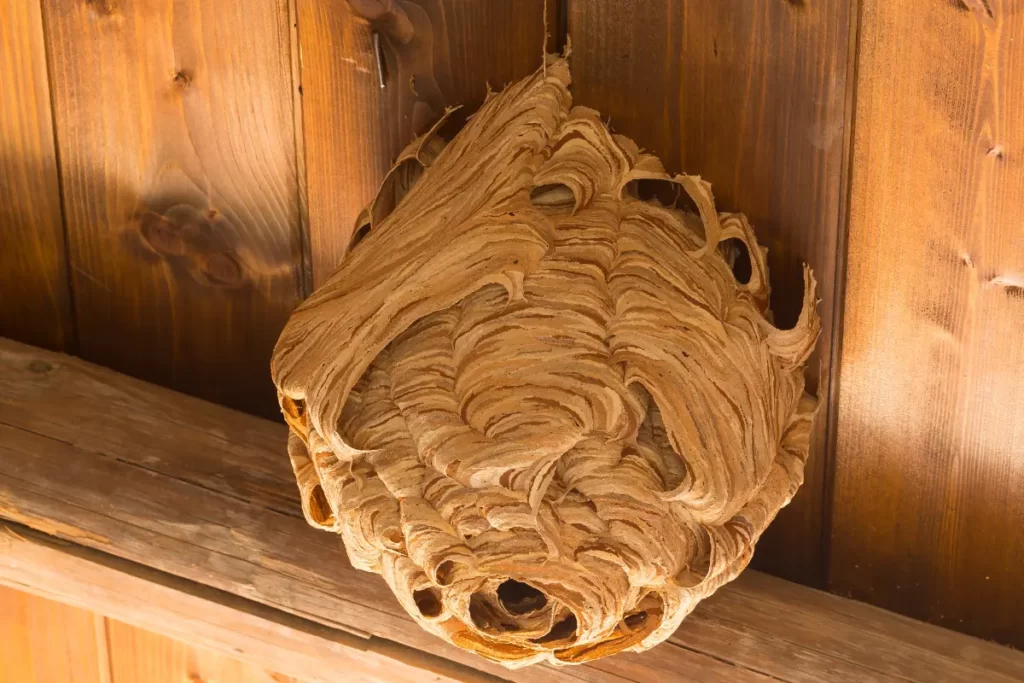
Because of its sticky and suffocating characteristics, hairspray is occasionally employed to destroy a wasp nest. Hairspray’s sticky nature, when sprayed directly onto a wasp nest, can cover the wasps’ wings, rendering them unable to fly. Furthermore, the chemicals in hairspray might clog the wasps’ breathing pores (spiracles), smothering them. Here are some reasons for its less use:
- Adhesive Properties: Hairspray includes polymers that make it sticky and form a film over the wasp nest, immobilizing the wasps and making it difficult for them to continue developing or maintaining the nest.
- Suffocation: Hairspray can clog the nest’s apertures and pathways, decreasing air movement into and out of the nest. This can result in a lack of oxygen inside the nest, smothering and potentially killing the wasps.
Other Aerosols – Do They Kill Wasps?
Yes, certain aerosols can kill wasps. Aerosol insecticides formulated specifically for flying insects, including wasps, can be used to control and eradicate wasp nests or individual wasps. These aerosols often contain active chemicals that are poisonous to insects when they come into touch with them. Wasps and their nests can be immediately paralyzed and killed by spraying them directly upon them.
If you detect a nest of wasps in your garden, consider spraying with an aerosol to deter the wasps and avoid stings.
Above all, it’s imperative to adhere to the directions on the product label while applying aerosol sprays. Sprinkle the hairspray in a well-ventilated area, away from open flames, and out of the reach of your children and pets.
Do Deodorants Kill Wasps?
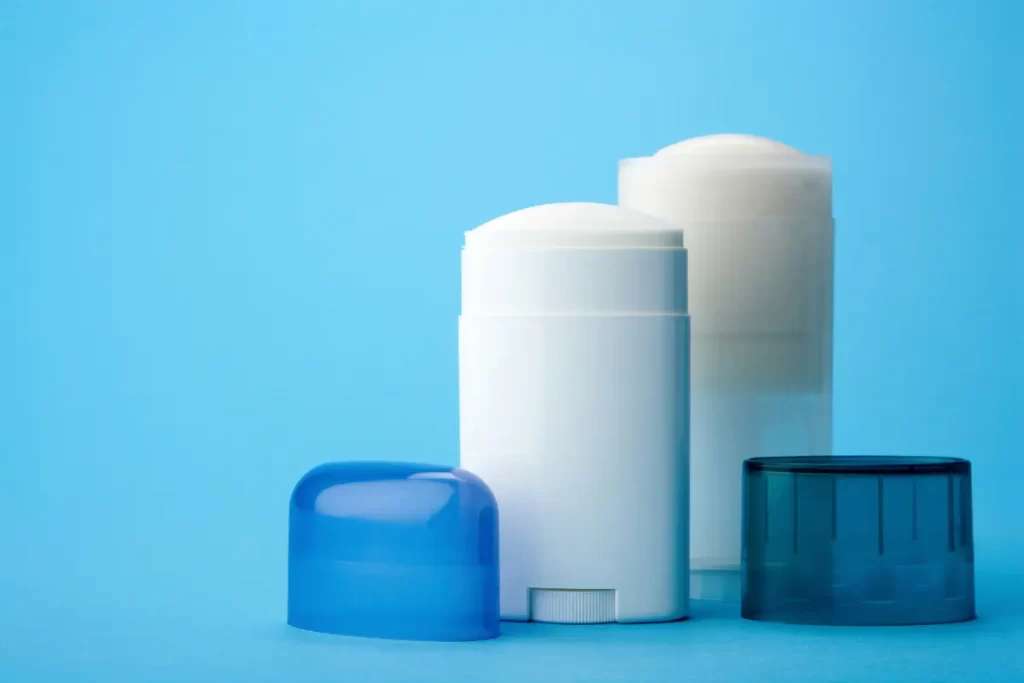
No, deodorants are not effective in killing wasps. They aren’t specifically designed to kill wasps. While some deodorants may contain chemicals that could harm insects like wasps, their primary purpose is to control body odor by suppressing bacterial growth and masking smells.
Deodorants contain only chemicals that are intended to hide body odor and reduce sweat by altering sweat glands. Therefore, you should avoid using deodorant to repel wasps because it may be inefficient or hazardous to you.
So, you should always apply appropriate pest control techniques to deal with a wasp infestation. Further, when using any kind of pesticide, it’s crucial to carefully read the directions on the container and exercise all necessary safety measures.
Other Insects That Killed by Hairspray
Below is a list of some insects that you can kill by hairspray:
Spiders
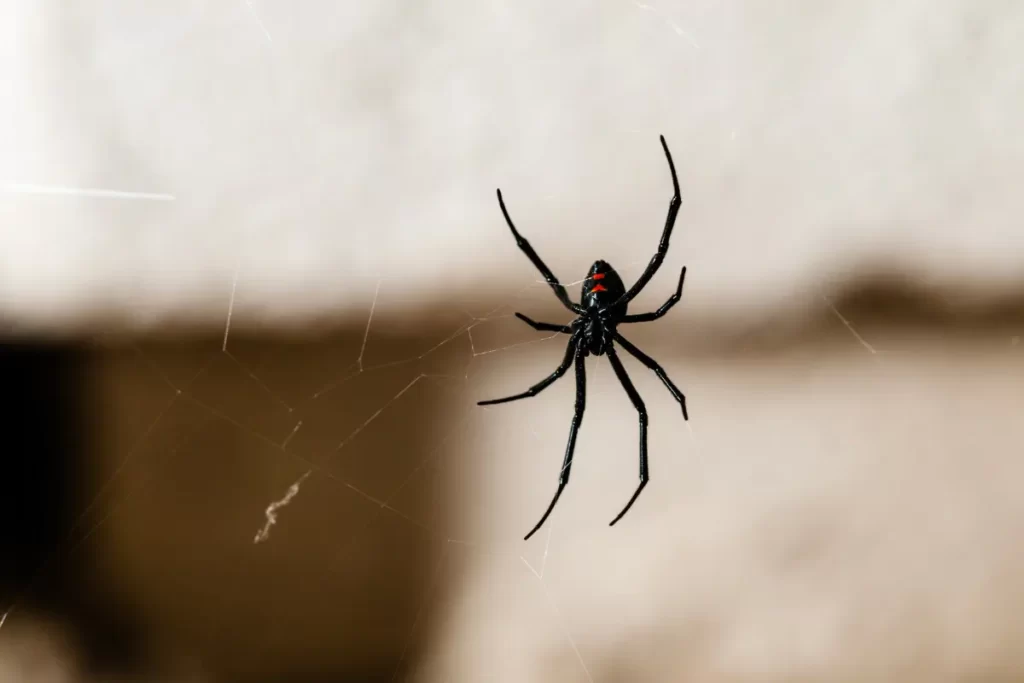
Spiders primarily breathe through small openings called spiracles, located on the abdomen. These spiracles allow air to enter its respiratory system and prevent the spider from getting the oxygen, causing suffocation and eventually death.
When you apply hairspray directly to a spider, it coats a sticky film on its body that prevents it from breathing. All of this shows that spiders are sensitive to any substance that would be harmful to inhale.
Above all, it’s best to speak with pest control experts for guidance on how to handle the spiders in your living area.
Mosquitoes
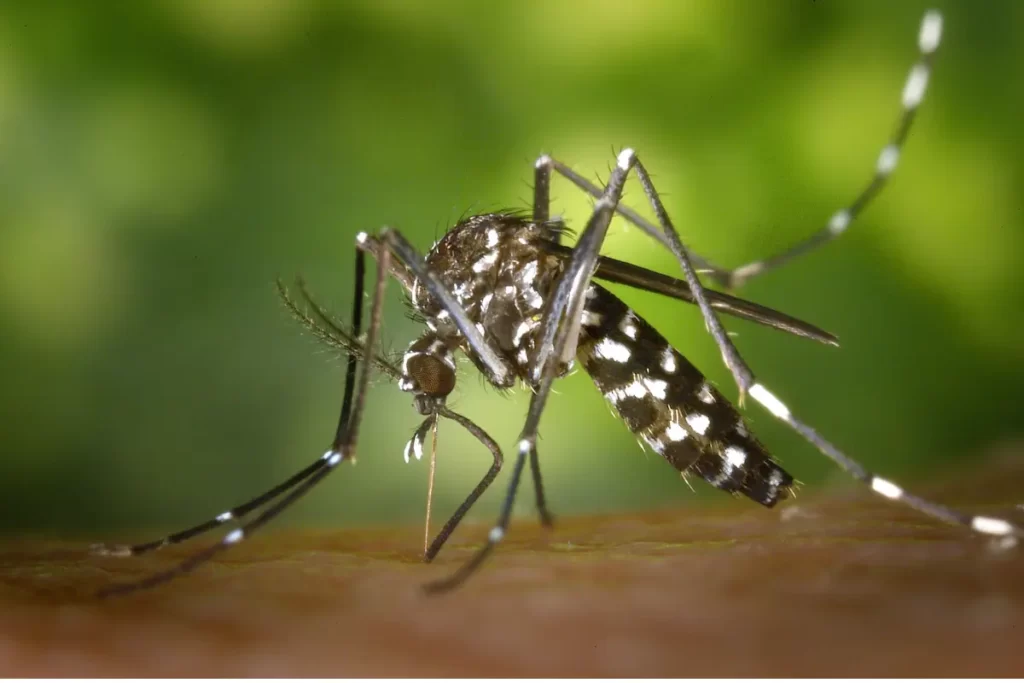
Hairspray is very effective against mosquitoes. As mosquitoes are small and thin insects, it’s easy to kill them with hairspray. The mosquito will immediately freeze over and die thanks to the hairspray’s sticky properties, so all you have to do is spray it and the area where it is flying with hairspray.
On the other hand, killing mosquitoes with hairspray is neither advised nor effective. Even though hairspray may momentarily halt or immobilize mosquitoes, it is not a safe or effective approach to eliminate them. Mosquitoes are tiny insects with a rather high metabolism, and they can quickly recover after being rendered immobile by hairspray.
Flies
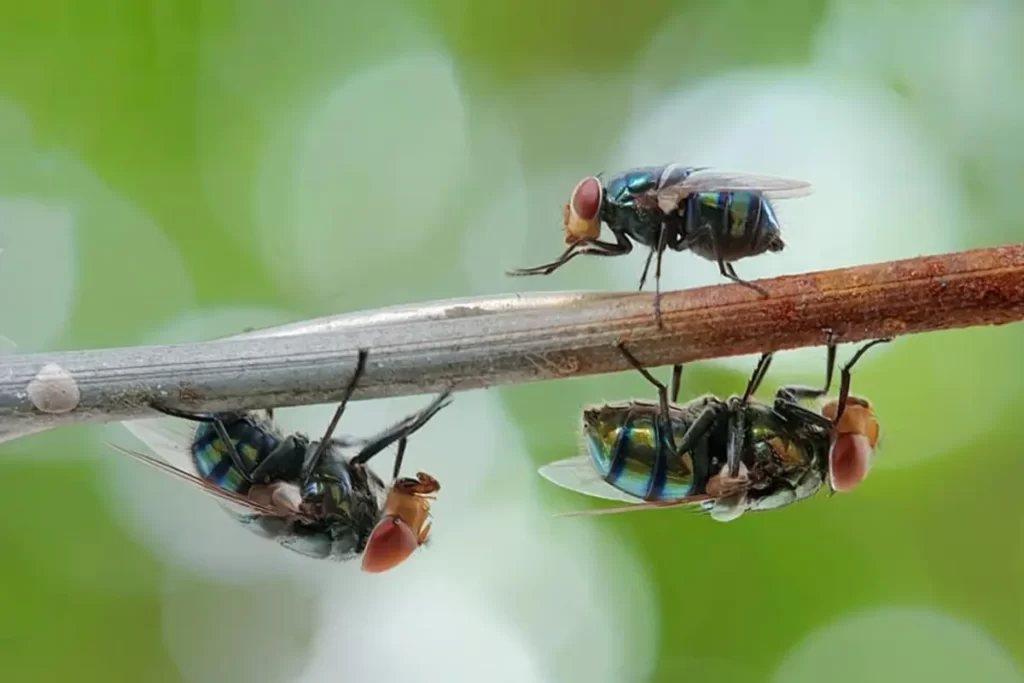
Due to its sticky and smothering qualities, hairspray can be a useful DIY fly-killing technique. Here’s how it functions:
- Adhesive Properties: Chemicals in hairspray often cause it to become sticky when it dries. A fly or other insect’s body and wings may become stuck to hairspray when you spray it directly on it. This renders the bug immobile and prevents it from escaping or taking flight.
- Suffocation: Hairspray can also obstruct the tiny breathing tubes (spiracles) that fly use to breathe. When hairspray splashes on flies, it can obstruct these spiracles, blocking airflow and essentially smothering the flies.
- Chemical Ingredients: In addition to its adhesive and suffocating properties, some hairsprays may contain chemicals that are toxic to flies. These chemicals could further contribute to the flies’s demise.
Cockroaches
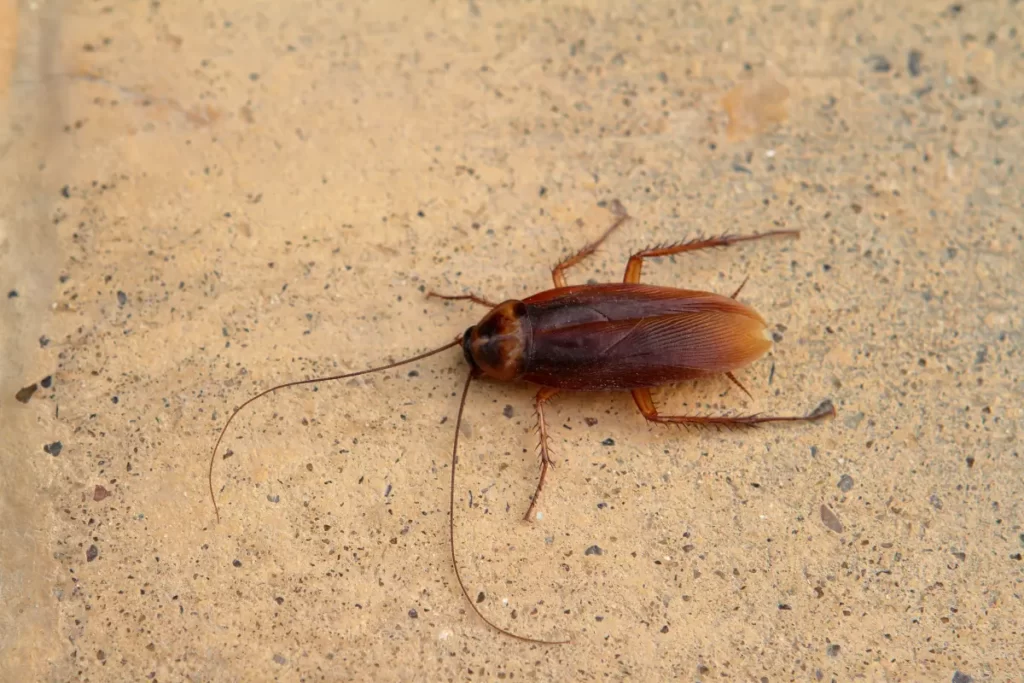
Although hairspray doesn’t permanently kill cockroaches, you can use it as a temporary insecticide to kill them. Hairspray can harm cockroaches by obstructing their spiracles.
When you apply hairspray directly on cockroaches, it clogs their spiracles and causes them to suffocate. However, it couldn’t immediately kill cockroaches, instead, it may take some time. Additionally, since they are hardy insects, some cockroaches may even survive hairspray.
No doubt, hairspray is a quick way to get rid of a single cockroach, but it’s crucial to realize that this is not a reliable approach for controlling an infestation.
Bugs
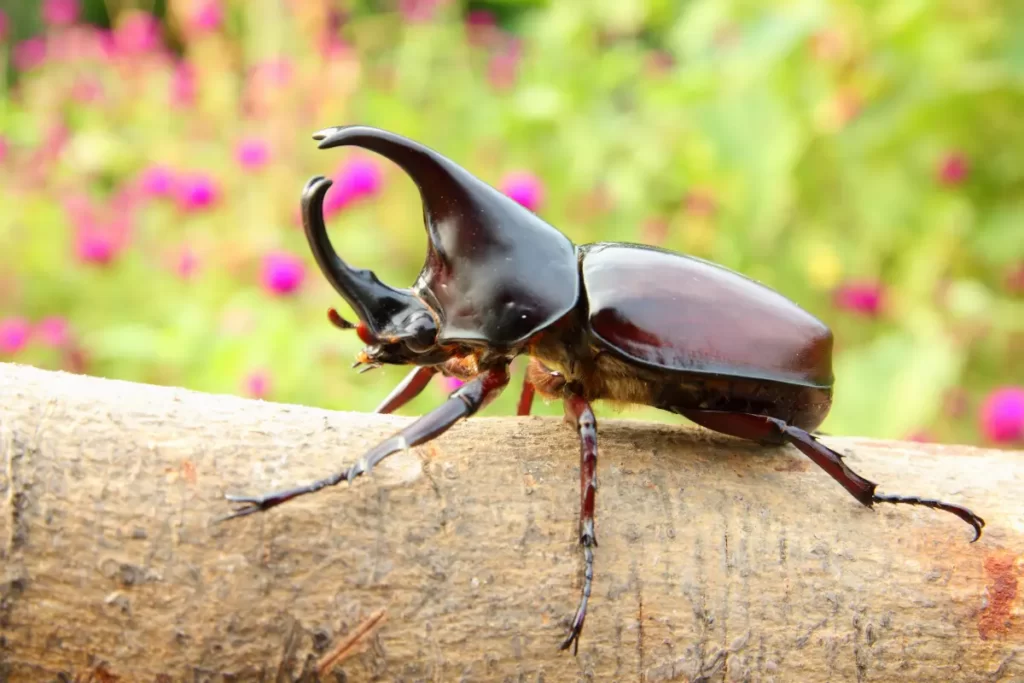
Hairspray can paralyze and choke insects, making it a useful improvised insecticide. Its ability to act as an adhesive and propellant is what causes hairspray to kill bugs; it is not its main function.
Hairspray comprises a variety of chemicals, including polymers, that stiffen and keep hair in place. When you spray hairspray on bugs, these polymers can adhere to their bodies, wings, and legs. It can immobile the bug due to its adhesive feature, which can restrict movement and cause its appendages to adhere to one another.
Additionally, hairspray includes volatile organic compounds that vaporize quickly. The body of the bug may develop a thin layer of these VOCs, which may obstruct its spiracles. The bug suffocates when these spiracles are blocked by hairspray residue because they can no longer exchange gases.
Ants
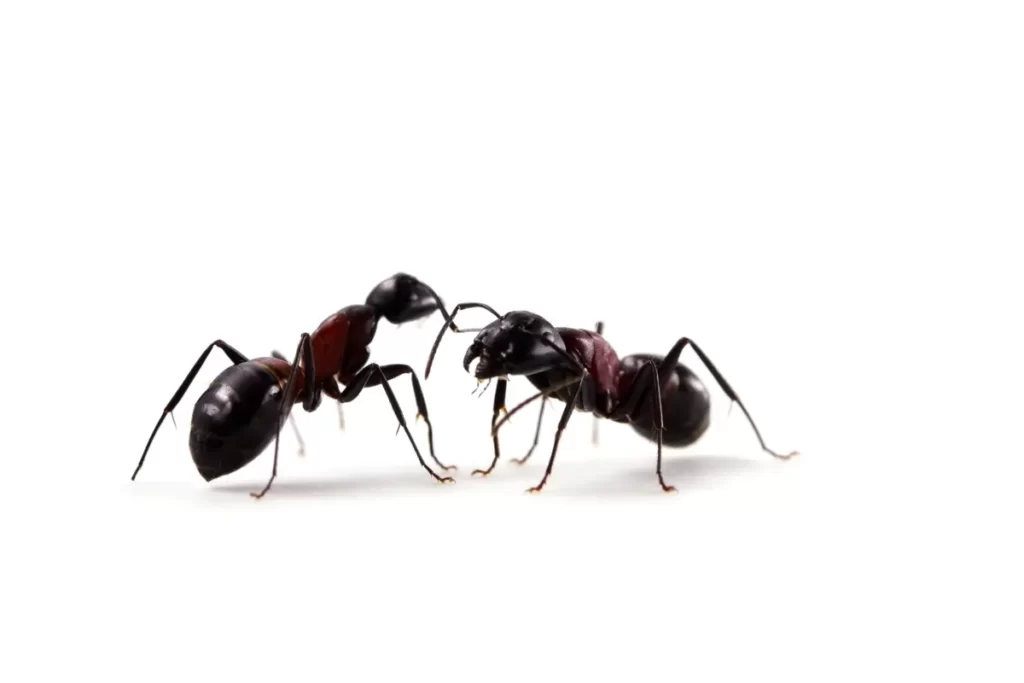
Though hairspray can kill ants, it’s not the best way to deter them. Insects, especially ants, can be immobilized by the chemicals in hairspray that obstruct their respiratory system. However, its efficacy can vary depending on the ant species and the type of hairspray.
Hairspray doesn’t leave long-lasting effects. Its effects are lessened as it dries or evaporates, and any remaining ants may be able to recover. Additionally, spraying hairspray on ants could expose you, your loved ones, or your pets to potentially dangerous substances. Due to safety considerations, it is typically not advised to utilize household products for pest management.
Moths
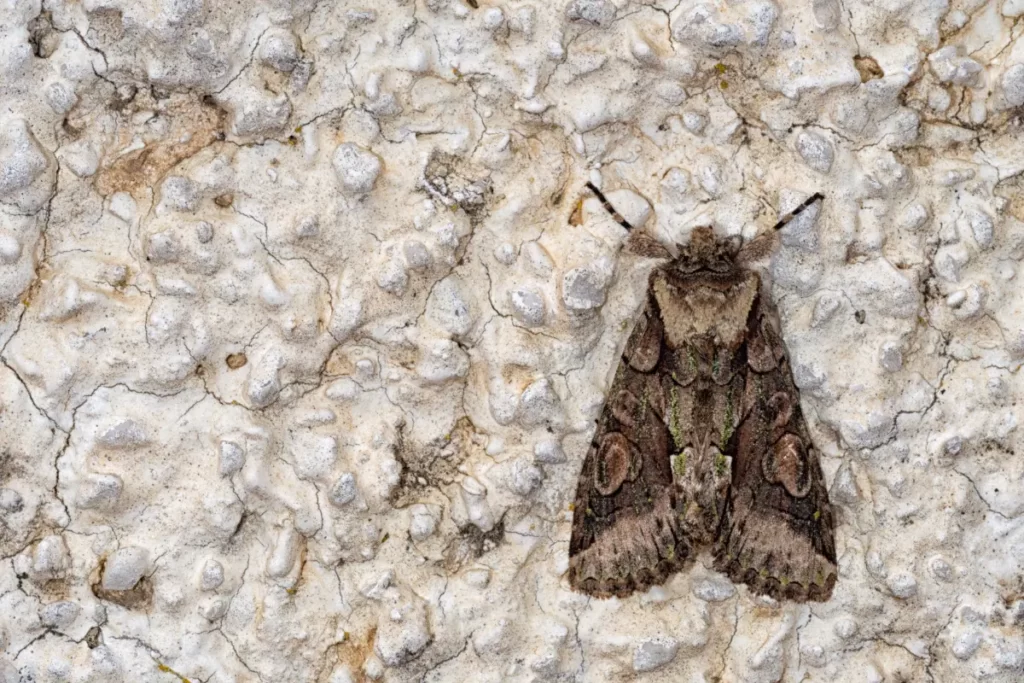
You can use hairspray indirectly to kill moths in certain situations. It contains chemicals that can immobilize moths by coating their wings and bodies. The sticky residue from the hairspray can interfere with their ability to fly and move, eventually leading to their death.
When you apply hairspray on garments, it forms a sticky barrier that moths can’t penetrate. It doesn’t kill current moths or their eggs, but it prevents future moths from laying eggs on clothing.
However, using hairspray to kill moths is not a wise choice because it uses a chemical substance that could be bad for the environment and your health.
Scorpions
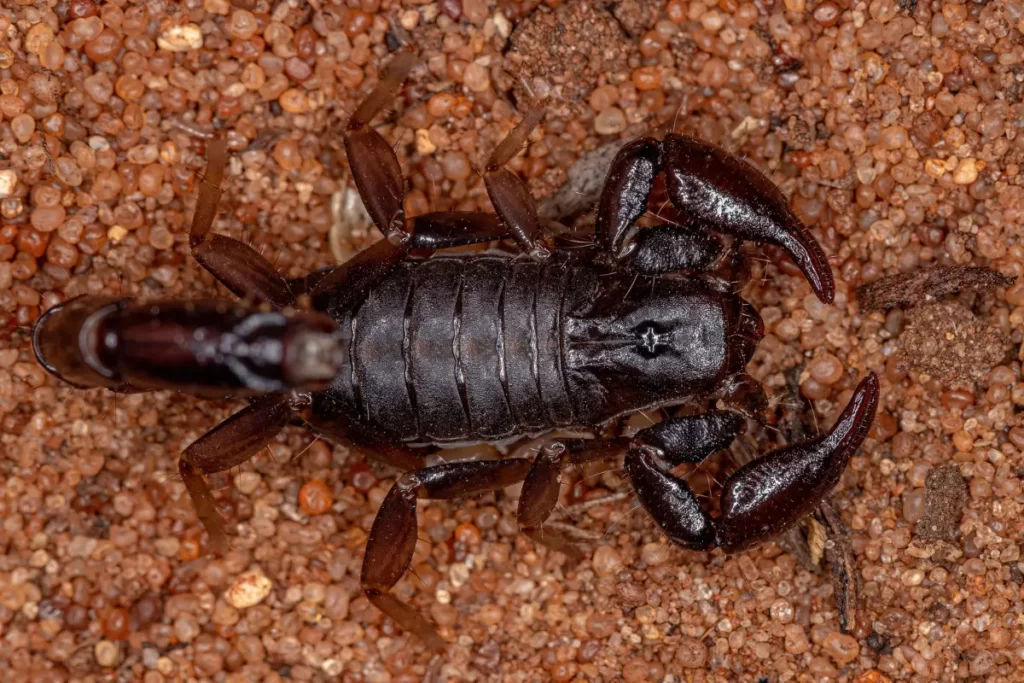
An efficient insecticide for killing a Scorpio is hairspray. It kills the scorpion by choking it. You can use hairspray to kill scorpions because the chemicals in hairspray cause suffocation.
The chemicals in hairspray coat a scorpion’s body, making them stick to surfaces and impeding its ability to move. Additionally, hairspray contains substances designed to help it adhere to surfaces. Scorpions are hardy animals, even though many of their species have adaptations that help them survive in hostile situations.
Additionally, maintaining proper hygiene and caulking possible access sites might help stop scorpions from ever getting inside your house.
Wrap Up
When wasps are buzzing around your house or yard, you’ll do anything to get rid of them. One way to keep wasps away is to use hairspray. However, it’s not an efficient way to kill them.
When you sprinkle hairspray directly on wasps, it can coat the wasp’s wings and bodies, hindering their ability to fly and making them easier to manage. However, it might not always lead to instant death, and some wasps could recover once the hairspray dries.
Thus, if you’re dealing with a wasp infestation or nest, prioritize safety for yourself and the environment.
FAQs
References
G. Puccetti, L. Kulcsar, Hair surface quality: Laser scattering as a tool for characterizing the surface condition and deposits from shampoos and conditioners, International Journal of Cosmetic Science, 10.1111/ics.12590, 42, 1, (89-98), (2019).

